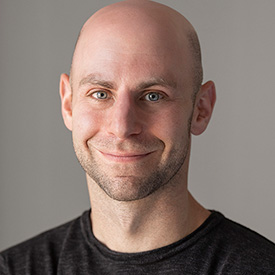In the 1980s, when Steve Jobs was trying to lure John Sculley away from Pepsi to join Apple, he clinched the deal with a single question: “Do you want to sell sugar water for the rest of your life or do you want to come with me and change the world?”
Back then, the organization to which people belonged was the dominant driver of whether they found their work meaningful. A sense of purpose came from belonging to a company with a mission that mattered. Selling sugar water was worthless; reinventing computers was worthwhile. But now, where you work is no longer the major source of meaning. And in the next decade, employers will fade even further into the background.
Today, there are some jobs where almost everyone reports a strong sense of meaning:
- Clergy and religious directors: 97%
- Surgeons: 94%
- Elementary and secondary education administrators: 93%
- Chiropractors: 93%
These jobs have three big things in common, and they debunk three lies about what makes work meaningful.
Trending: Navy SEAL Secrets for High Performance Under Pressure
Lie #1: Meaning comes from where we belong.

You don’t need to work for a company like Apple to find meaning. All of the meaningful jobs above are completely untethered to specific organizations. Some of them work at multiple sites: surgeons often split their time between half a dozen different hospitals in a week, and clergy float between different religious institutions. The rest can do the same job anywhere: education directors and administrators can move from one school to another—and chiropractors from one office to another—while the nature of their work stays the same. They identify with occupations, not organizations. As Dan Pink wrote in Free Agent Nation: “Bye, bye, organization guy.”
Lie #2: Meaningful work is knowledge work.

You don’t need to be a knowledge worker to find meaning. You might have heard that the industrialized world has shifted from a manufacturing economy to a knowledge economy, but this isn’t actually true. We work in a service economy, and that’s where the meaning lies.
In the U.S., nearly three of every ten employees are knowledge workers. This number pales in comparison to service workers, who represent about eight of every ten American employees. The service sector now accounts for almost two thirds of the world’s GDP—up from half in the 1980s—including about 80% of GDP in the U.S. and 73% in the EU.
Trending: How to Make Menopause the Best Time of Your Life
The most meaningful jobs are all service jobs. Surgeons and chiropractors promote physical health. Clergy and religious directors promote spiritual health. Educators promote social and mental health. If these jobs didn’t exist, other people would be worse off. Meaningful work makes other people’s lives more meaningful.
Lie #3: Meaning depends on having a visionary boss.

You don’t have to work for Steve Jobs to have a meaningful job. Purpose isn’t scripted by a boss or dreamed up by a charismatic leader. Instead, it’s shaped by the people who hold the job. Researchers Amy Wrzesniewski and Jane Dutton call this job crafting: taking the initiative to become an active architect of your own job. They worked with a surgeon who sought greater meaning by spending less time consulting with other physicians, shifting his priorities toward teaching more by giving lectures and educating residents. They also discovered a group of hospital cleaners who were able to make their work more meaningful by finding creative ways to take care of patients, even though it wasn’t in their job descriptions. One cleaner worked on a wing with patients who were in comas, and she started rearranging the artwork on their walls in the hopes of sparking their awareness.
At its heart, meaning-making is an act of self-expression, a chance for us to reveal who we are through what we do. After interviewing hundreds of people about their jobs, Studs Terkel observed that “Work is about a search for daily meaning as well as daily bread.” To find it, we need to realize that meaning is about what we do, not where we belong. It lives in the relationships between people, not ideas. And it’s created from the bottom-up, not the top-down.
Trending: Microsoft, Google, and Beyond: What Business at the Cutting-Edge of AI Looks Like
***
Adam is a Wharton professor and the New York Times bestselling author of Give and Take: Why Helping Others Drives Our Success. Sign up for his free monthly newsletter on work and psychology at www.giveandtake.com.
Note: This post is part of a series commemorating The Huffington Post‘s 10 Year Anniversary through expert opinions looking forward to the next decade in their respective fields. To see all of the posts in the series, read here.































